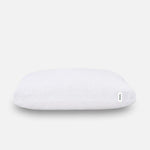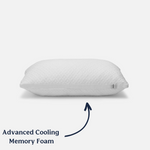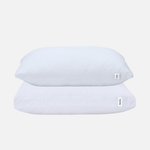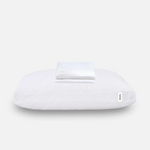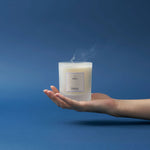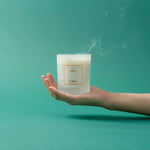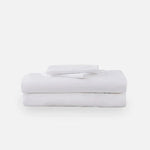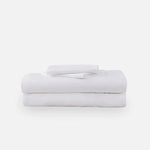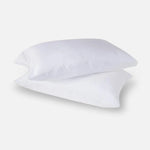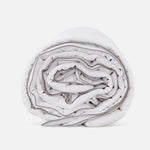It’s hard to imagine a time before duvets were introduced. They make our lives so much more comfortable and cosy that we’ve become a bit spoiled by them.
Wondering at what point in history duvets were first dreamed up? Grab a cup of tea, sit down, and get ready for a short lesson on duvet history.
Who Invented the Duvet?
No one knows for sure who invented the duvet. The record-keeping wasn’t as intense back then as it is now. But the name is French in origin.
The first documented use of the duvet was in the days of the Vikings. It’s fascinating to think of how different the lives of Vikings were compared to our own. And it’s interesting to imagine them hunkering down for a long winter’s night under a duvet, struggling to stay warm against the elements.
While they were used during the time of Vikings, they really began spreading like wildfire during the 16th century throughout Europe.
They remained popular, so much so, that in 1749, Thomas Nugent, an English writer, saw them while he was travelling through Europe.
In parts of Europe, duvets had become a luxury item of sorts for the upper class. Since that time, they have been used commonly in various regions, although they have had times of waning popularity.
Duvets in the UK

The UK wasn’t as quick to embrace the duvet concept as some other parts of the world were. Businessman and diplomat Paul Rycaut tried to introduce the concept of duvets to England, after he first experienced them while in Hamburg, Germany, in 1689.
He tried to convince his friends to make their own, sending them the necessary filling. Rycaut also attempted to sell duvets without much luck. UK citizens held tightly to their tradition of using sheets and blankets instead.
Rycaut had the right idea but was ahead of his time. The expensive nature of duck or goose down was one reason his plan failed. Plus, England has historically been slow to embrace outside fads and trends, which didn’t help his business plan either.
It wasn’t until almost three centuries later that duvets became mainstream in England. Sir Terence Conran, the founder of Habitat, introduced some in their product lines, lauding how simple they were when it came to making your bed.
Within a few years, after Habitat opened and introduced duvets to the masses, they became a hot commodity in the UK.
Duvets in Modern Times

Duvets continue to enjoy popularity across the world and show no signs of slowing down, even as people turn toward other options, like weighted blankets. But while traditional duvet fillers, such as down and feathers, still exist, the majority of customers opt for synthetic fillings instead when buying a modern duvet.
Part of that can be attributed to the rise of allergic conditions, such as asthma and allergies. Those conditions can make down and feathers more irritating than comforting to duvet users. No one wants to spend money on an expensive duvet only to have it worsen their allergies or asthma.
Another reason customers are increasingly turning toward synthetic filling rather than down is the price. They can get a warm duvet at a fraction of the price they’d pay for a down-filled one. A down-filled one can feel like too much of a luxury item when they can get a cheaper one that feels just as nice.
If you’re travelling across the world and you want to ask for a duvet to use, you’ll find it goes by various names, depending upon where you are. In the U.S., duvets are known as comforters instead. If you’re in Australia, it will be known as a doona.
Wrapping It Up
Duvets have had a long, rich history throughout the world. While they haven’t always been embraced with open arms by every culture, they’ve been a mainstay for centuries. People become attached to their duvets, reaching for them whenever they need warmth or a feeling of comfort and security.
They’ll likely continue to be a staple product in bedrooms across the globe for centuries to come.

